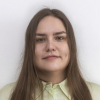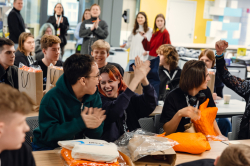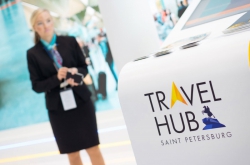A career investment
By the time of its tenth installment, the National Technology Olympiad has grown into a large-scale event that attracts thousands of school students. For its participants, it is a chance to test their knowledge, learn from top experts in tech, visit some of the major Russian companies, make new connections, and, of course, enroll in a university without entrance exams. According to the stats of the olympiad, almost half of its winners in the previous years have enrolled at one of the nation’s top 10 universities.
ITMO University has been a part of the NTO for the past four years. This year, the university has already provided a venue for final stages of two tracks: Intelligent Robotic Systems (with support from the company ROBBO) and Big Data & Machine Learning (with support from Yandex, VK, and IT contest platform All Cups). ITMO will also be hosting the finals of two other tracks – Infochemistry and Software Engineering in Fintech (with support from Sberbank) – later this April.
Best solutions
Almost 30 school students passed into the final stage of the Intelligent Robotic Systems track. Over the course of a week, they solved math and computer science problems before moving on to writing code for robots. For that final task, each of the eight teams had to develop software for an automated warehouse. Using two mobile robots, the competitors needed to distribute cargo between storage areas before quickly delivering it to a loading zone. In order to successfully accomplish the task, they had to demonstrate proficiency in computer vision, automated control, and practical robotics.
The winner’s title went to team adeptus roboticus from Moscow.
“The main advantage of our solution is that it’s legitimately functional – we were able to demonstrate our robot’s capabilities right there in front of the jury. In addition, we found a method of transferring and deploying solutions onto the server that was different from everyone else’s – this sped up the process and made it more efficient. A large part of our success is the experience we acquired at last year’s NTO finals. We were ready to solve small tasks 'on the go,' to work a lot, and to test multiple solutions – we knew that it wouldn't be possible to find the optimal option on the first try,” says Fedor Shpilevoy, a member of the winning team.
Meanwhile, the final stage of the Big Data & Machine Learning track saw 122 participants across 44 teams compete for the win. The teams were presented with problems in math, computer science, competitive programming, and machine learning. At the end, they were also tasked with developing a program that could predict the number of likes, comments, and reposts on social media posts. In order to do that, they’d need to identify the most efficient way of pre-processing text and images – and figure out which indicators were worth paying attention to. Some would count the number of characters per post, while others converted emoji into different graphic symbols to figure out the implied emotions. Others deemed that the success of a post hinged entirely on images.
Another important element of the task was analysis of the available data. Using the provided samples, the competitors identified patterns between the content of the posts and the number of likes, as well as picked the best-suited ML models for the task.
The best solution was proposed by team Singularity ML. The winners had found the largest number of criteria for analysis of text and images and determined patterns using data from Yandex’s CatBoost open-source library. Then, they identified the most common type of data and picked the most efficient ML models to analyze it. It was this painstaking work that played a key role in the team’s success.
“This isn’t our team’s first time at NTO. I’ve been in a few competitions and hackathons, so I’m already familiar with Docker and other software and ML models. This greatly expanded our abilities when it came to working with data and allowed us to find the optimal solution. We also had great ‘camp counselors’ who supported us, entertained us during off time, and answered all our questions – which really helped us feel comfortable and focus on the tasks,” says Vadim Vetrov, a member of Singularity ML.
More winners
Winners and runners-up of the aforementioned tracks will now receive the opportunity to enroll without entrance exams (or receive 100 points on their Unified State Exam in computer science) in ITMO University’s educational programs within relevant subject areas such as: Applied Mathematics and Computer Science; Information Systems and Technologies; Mechatronics and Robotics; and others.
At the awards ceremony, gifts went to more than just the main winners. Team Старая гвардия (“Old Guard”) received a special prize from VK – an IT-themed summer trip – for the most unorthodox solution. Additional gifts went to 15 participants who managed to solve bonus tasks from VK Education during the competition. Finally, team To Do придумать название (“To Do: come up with a name”) received little delivery robots from Alexander Pavolotsky, the academic director of Yandex Lyceum.
“10 years ago, NTO only had four tracks. Now, students of grades 8-11 can choose from more than 30. NTO has become a social elevator for those building their career. We work hand-in-hand with universities and businesses, which opens up even more opportunities for the participants. During the final stage, they get to talk to representatives of tech giants, see how these companies work on the inside, and even secure an internship. Most importantly, they can clearly outline their professional development trajectory. For our project office, the tenth anniversary of NTO is first and foremost a reason to think about why we do what we do. Our graduates aren’t always high-profile figures: some go into science, some are in the corporate world, some teach. In any scenario, they’ve all reached great heights, but we don’t always know it. That’s why we’ve established FAKEL NTO (“The Torch of NTO”), an award for graduates – its results will be made public this April,” says Dmitry Kutsenko, the head of NTO’s project office.
















